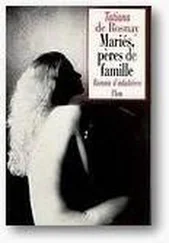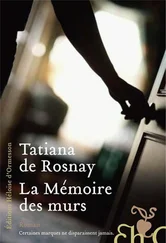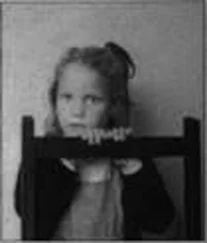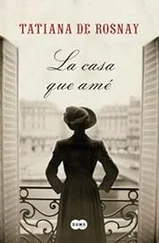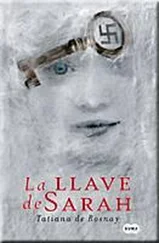I think of Patrick and Suzanne. Where are they now? With their daughter’s body? At home, where no sleep will come? Could Pauline have been saved? Perhaps she had a heart condition. Did anyone know? If she hadn’t been playing basketball, would she still be alive? The questions run round and round in my head. I feel a horrible panic grow. Getting up, I go to the window, wrench it open, letting the icy air seep through me. The cemetery stretches out in front of me, vast and dark. I keep thinking of Pauline, her dead body. Her braces. What will they do about her braces? Will she be buried with them? Will some dentist need to pry them out? Or is that a mortician’s job? My hand reaches out to grab my phone. I need to talk. I need to talk to Angèle.
A couple of rings, and she picks up. Warm, sleepy voice.
“Hello there, Monsieur Parisian. Are you that lonely?”
I am so relieved to hear her voice in the middle of the night, at this abominable moment, that I nearly cry out. I tell her quickly what happened.
“Ouch,” she says. “Your poor daughter. She saw her friend die. That’s bad. How is she doing?”
“Not so good,” I admit.
“And your wife is not there, right?”
“Yes.”
Silence.
“Do you want me to come?”
This is so blunt that I gasp.
“Would you?”
“If you want me to.”
Of course, yes, of course, please come, do come, get onto that Harley right now and drive like a bat out of hell, yes, please, please come, Angèle, I need you, come. Come! What would she think of me if I said that, if I beseeched her to come right now? Would she find me weak? Would she pity me? Does she pity me?
“I wouldn’t want to be a pain. It’s such a long drive.”
She sighs. “You men. You just can’t say things outright, can you? I’ll come if you need me. Just let me know. Bye now. Early start tomorrow.”
She hangs up. I feel like calling her back, but I don’t. I tuck the phone into my pocket and lie back on the sofa. I finally doze off. When I wake up, the boys are making their breakfast. I glance in the mirror. I look like a rumpled cross between Mr. Magoo and Boris Yeltsin. Margaux is already in the bathroom and will probably stay there for a while. I hear the shower running.
As I pass in front of her room, I glance in. Her bedsheets are thrown back. Strange, I think, new sheets. I have never seen these before. Large red flowers. I come closer. These are not large red flowers. They are bloodstains. Margaux has had her period during the night. And from what Astrid has told me, this is her first time.
Is she all right? Is she shocked? How does she feel? Is she afraid, relieved, disgusted, embarrassed, in pain, all of these things? Margaux has her period. My little girl. She can have babies. She is ovulating. Producing eggs. I don’t know if I like the thought of it. I don’t know if I’m ready for it. But Astrid is not here, and I need to take this in my stride. Of course I knew my daughter would have her period one day. But I believed, in a cowardly and obscure fashion, that this was Astrid’s feminine realm, not anything to do with me. How on earth do fathers deal with this? What I am supposed to do? Let her know that I know? That I’m proud? That I’m here to help, if she needs me, with a sort of burly John Wayne swagger, because, yes, of course, I know all about tampons (with or without applicators) and sanitary pads (light and heavy flow) and the throes of PMS. I’m a modern man, right? How can I talk to my daughter about her period? Especially today, after what happened last night. It seems impossible. The only thing that jumps to mind is calling Mélanie. I have no memory about Mel’s period and how old she was when she got it, but in Astrid’s absence, she is the only feminine ally I can think of.
I hear the bathroom bolt unlock and furtively step out of her room.
Margaux appears, her hair gathered up in a towel. Purple circles under her eyes. She mumbles good morning and brushes past me. I reach out and graze her shoulder. She moves away.
“How are you, sweetie?” I ask tentatively. “How-are you feeling?”
She shrugs. The door closes with a loud click. Does she know what to do? I wonder. About her period. Sanitary pads and tampons. Of course she does. Astrid probably explained all this to her, her friends did. Pauline probably did. I go and make myself a coffee. The boys are on their way to school. They both hug me clumsily. As they leave, the doorbell rings.
It is Suzanne, Pauline’s mother. There is a painful, emotional moment as we face each other on the doorstep. Her hands find mine as the boys peck her cheeks and slip away, overwhelmed.
Her face is bloated, her eyes little slits. Yet she bravely smiles at me. I take her into my arms. She smells of the hospital, of pain, of fear, of loss. We stand together, rocking slowly. She is a small woman. Her daughter used to tower above her. She looks up at me. Watery irises.
“I could do with some coffee.”
“Sure! Right away.”
I lead her into the kitchen. She sits down, taking off her coat and scarf. I pour out a cup for her, my hands unsteady. I sit down to face her.
“I’m here for you, Suzanne” is all I can come up with.
But she seems to like that, however feeble it must sound, for she nods and takes a trembling sip of the coffee. She says, “I keep thinking I’m going to wake up. That this thing is just a nightmare.”
“Yes,” I say softly.
She is wearing a green cardigan. White blouse. Black trousers. Low-cut boots. Was she wearing those clothes when they called her yesterday to tell her her daughter was dead? What was she doing when they called her? Was she at her office? In her car? What did she think when she saw the school’s number show up-that Pauline had cut class, or that there had been a problem with a teacher? I want to tell her how ghastly I have felt since Margaux’s call.
I want to express all my sympathy, all my sadness, all my wretchedness, yet nothing comes out. I can only take her hand and hold on to it for dear life. That’s all I can do.
“The funeral is on Tuesday. Out in the country. At Tilly. Where my dad is buried.”
“We’ll be there. Of course.”
“Thank you,” she murmurs. “I came by to pick up Pauline’s things. Her bag, I think, and some clothes.”
“It’s all here.”
As I get up to fetch the bag and clothes, Margaux comes in. She sees Suzanne, and with a sharp little yelp that hurts me, she flings herself on Suzanne, burying her head in her shoulder, sobs racking her slim frame. I watch Suzanne comfort her, patting her hair. Margaux cries, and words come gushing out, the words she wouldn’t say to me yesterday.
“We were in gym class, like every Thursday. We were playing basketball. Pitou sort of crumpled up on the floor. When the teacher turned her over, I knew. Her eyes had rolled up. You could only see the whites. The teacher tried to resuscitate her, did all the stuff you see on TV. It lasted forever. Somebody called an ambulance. But by the time they got there, it was over.”
“There was no pain,” Suzanne whispers, stroking Margaux’s damp hair. “She felt no pain. It was over in seconds. The doctors told me.”
“Why did she die?” asks Margaux simply, leaning back on her heels to look up at Suzanne.
“They believe there was a problem with Pauline’s heart. A problem that none of us knew about. Her little brother is being tested this week to find out if he has the same problem.”
“I want to see her,” says Margaux. “I want to say goodbye to her.”
Suzanne’s eyes meet mine.
“Don’t stop me, Dad,” Margaux says quickly, not looking at me. “I want to see her.”
“I’m not stopping you, sweetie. I understand.”
Читать дальше


